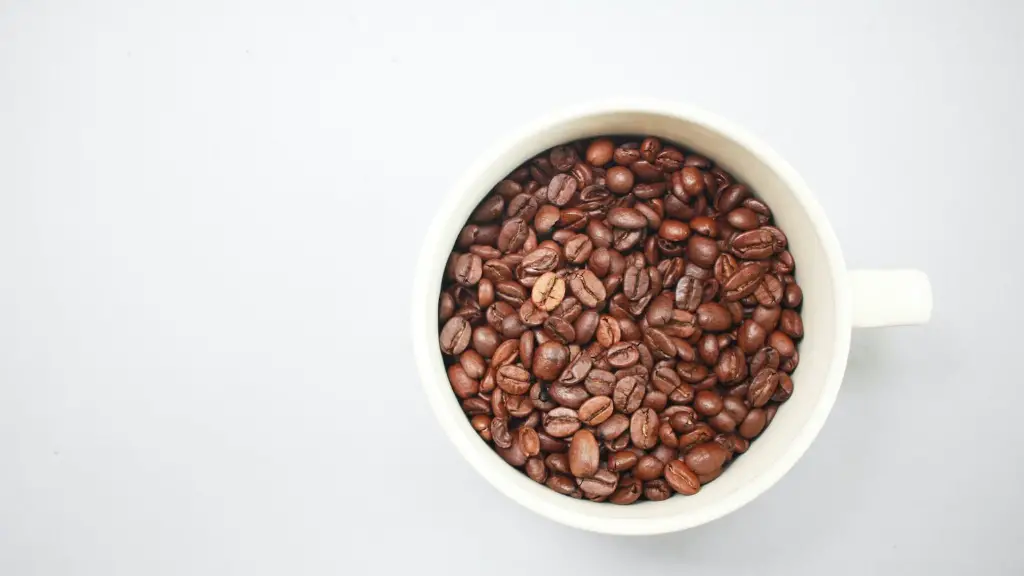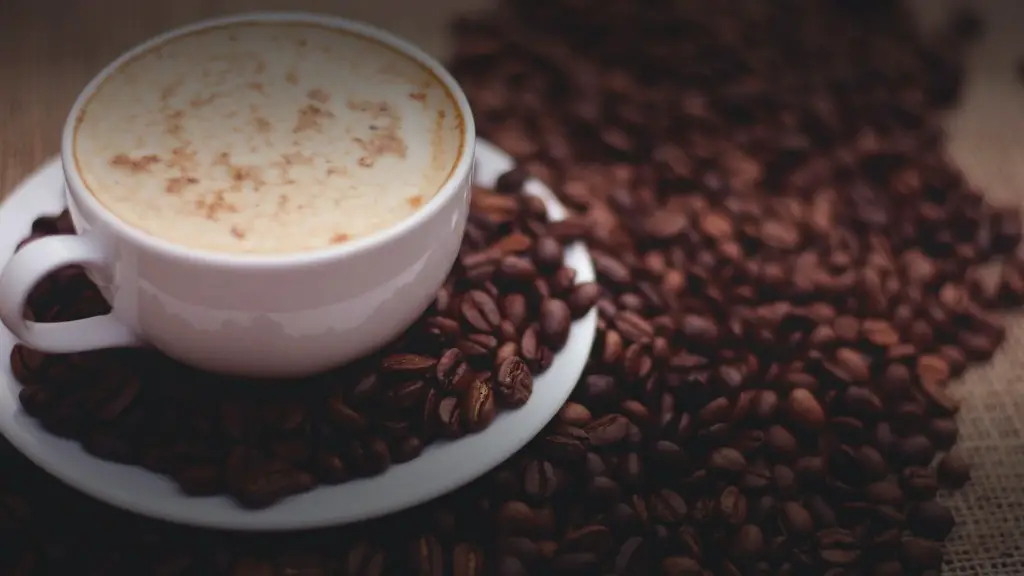Coffee is one of the most popular beverages. Every morning, many people around the world enjoy a cup of coffee. Although it can be incredibly delicious and a great pick-me-up, there are risks associated with drinking too much coffee. But how much coffee is too much?
Coffee contains caffeine, a stimulant that can be harmful if consumed in large quantities. According to the American Heart Association, 400 milligrams of caffeine per day is the maximum recommended amount for healthy adults. That’s roughly the equivalent of drinking three to four 8-ounce cups of coffee per day.
However, it is important to note that not everyone reacts to caffeine the same way. Some people may be more sensitive to caffeine than others, and may become jittery and anxious if they have more than one cup of coffee per day. Additionally, pregnant women should limit their intake of caffeine, as it can have an effect on fetal development. It is best to consult your doctor if you are pregnant and concerned about your caffeine consumption.
It is also important to be aware that coffee consumption can cause certain side effects. Excessive amounts of caffeine can lead to headaches, insomnia, and irritability. In fact, some people develop a physical dependence on caffeine, which can make it difficult to cut back on caffeine consumption. It is therefore important to consider the long-term effects of excessive caffeine consumption.
When it comes to coffee consumption, moderation is key. The recommended safe limit for healthy adults is 400 milligrams of caffeine per day, or three to four 8-ounce cups of coffee per day. It is also important to consider individual factors such as caffeine sensitivity and pregnancy. Finally, be aware of any potential side effects of excessive caffeine consumption, such as headaches and insomnia.
How Much Caffeine Is In Coffee?
The amount of caffeine in coffee can vary depending on the type of coffee and how it is brewed. Generally, an 8-ounce cup of coffee contains 95 milligrams of caffeine. On the other hand, espresso typically contains more caffeine, with around 75 milligrams of caffeine per 1-ounce shot. Additionally, certain specialty coffee drinks can contain even more caffeine than an 8-ounce cup of coffee, so be sure to check the label if you are trying to limit your caffeine intake.
Should You Drink Coffee?
Whether or not to drink coffee is a matter of personal preference. Some people choose to forgo coffee altogether, while others find it helps them stay energized throughout the day. Additionally, coffee has been linked to several potential health benefits, such as reduced risk of heart disease, diabetes, and cancer. However, it is important to keep in mind that the health benefits of coffee depend on the individual and may vary from person to person.
Ultimately, making the decision to drink coffee is a personal choice. But if you do decide to drink coffee, it’s important to keep your consumption in check. The recommended amount for healthy adults is 400 milligrams of caffeine per day, or three to four 8-ounce cups of coffee. Additionally, it is important to consider individual factors such as caffeine sensitivity and pregnancy when deciding how much coffee to drink. Finally, be aware of any potential side effects of excessive caffeine consumption, such as headaches and insomnia.
Types Of Coffee To Try
If you are a coffee drinker, there are many different types available to try. From traditional espresso and cappuccinos to cold brew and pour-over, there is something for everyone. Additionally, many cafes and coffee shops offer specialty drinks such as lattes and mochas. Trying different types of coffee can be a fun way to explore the world of coffee.
For those looking for a healthier alternative to coffee, there are several options available. Tea, turmeric and ginger lattes, and coffee substitutes such as chicory and dandelion coffee are just a few of the options available. Additionally, some plant-based milks such as oat and almond milk can be used in place of dairy milk. No matter what type of coffee you choose, be sure to limit your intake to the recommended amount of 400 milligrams of caffeine per day, or three to four 8-ounce cups of coffee.
Coffee Alternatives
For those looking for an alternative to coffee, there are many options available. Whether you are looking for a morning pick-me-up or something to sip on throughout the day, there are many non-caffeinated drinks that can be enjoyed. From herbal teas and juices to smoothies and probiotic drinks, there is something for everyone.
There are also several coffee alternatives that are specifically designed to mimic the flavor and taste of coffee without the caffeine. These products are typically made from roasted grains, beans, and nuts. Not only do they provide a boost of energy without the caffeine, but they also offer numerous health benefits. For example, some coffee alternatives are a great source of antioxidants, fiber, and vitamins.
The Benefits Of Coffee
Although it is important to be aware of the risks associated with excessive caffeine consumption, it is also important to consider the possible benefits of coffee consumption. Studies have linked coffee consumption to a reduced risk of several health conditions, including heart disease, diabetes, and cancer. Additionally, coffee might also improve concentration and alertness, reduce the risk of depression, and even promote weight loss. Of course, these potential benefits will vary from person to person, so it is best to consult your doctor if you are considering adding coffee to your diet.
For those who are able to enjoy coffee in moderation, there are numerous potential benefits. Not only can it provide a great pick-me-up and a delicious cup of coffee, but it has also been linked to a number of potential health benefits. However, it is important to keep in mind that the recommended safe limit for healthy adults is 400 milligrams of caffeine per day, or three to four 8-ounce cups of coffee per day.
Decaffeinated Coffee
For those looking to reduce their caffeine intake, decaffeinated coffee is an option. Decaffeinated coffee still contains some caffeine, typically around 8-14 milligrams per 8-ounce cup. However, this is significantly less than the 95 milligrams of caffeine found in regular coffee. Additionally, decaffeinated coffee is still a good source of antioxidants and other beneficial compounds. However, it is important to note that decaffeinated coffee is still not completely caffeine-free, so it may not be the best choice for those who are extremely sensitive to caffeine.
Healthy Habits With Coffee
In order to get the most out of coffee, it is important to consider healthy habits. For example, making sure to limit your intake to the recommended amount of 400 milligrams of caffeine per day, or three to four 8-ounce cups of coffee per day. Additionally, be sure to watch how much sugar and cream you are adding to your coffee. Too much sugar and cream can make your coffee less healthy and add unnecessary calories to your diet. Additionally, be aware of any potential side effects of excessive caffeine consumption, such as headaches and insomnia.
Finally, it is important to consider other alternatives. If you are looking for an energy boost without the caffeine, there are many options, such as herbal teas, coffee substitutes, and plant-based milks. Additionally, there are many non-caffeinated drinks that can be enjoyed. No matter what you choose, be sure to consider all the available options and enjoy caffeine in moderation.





